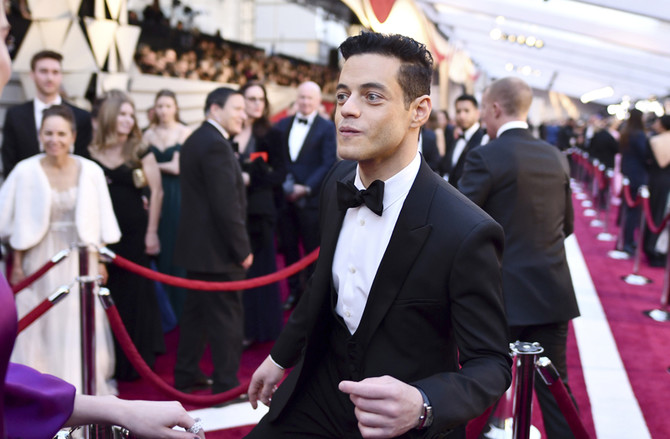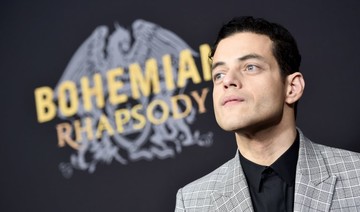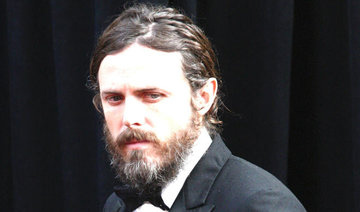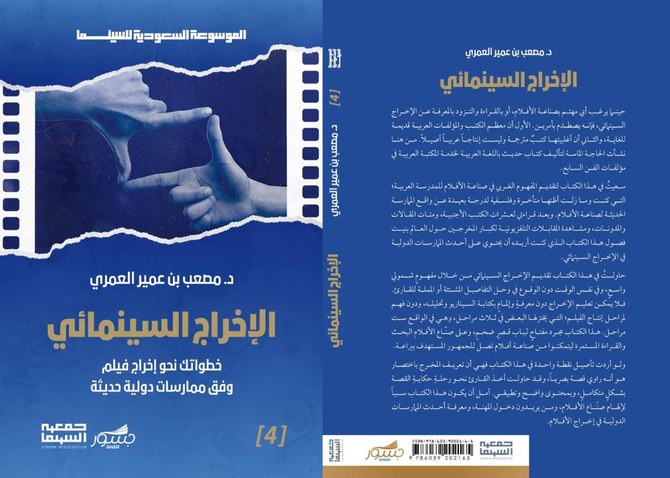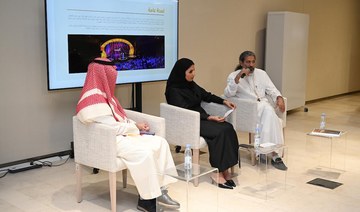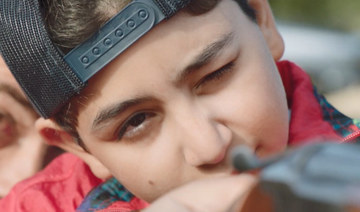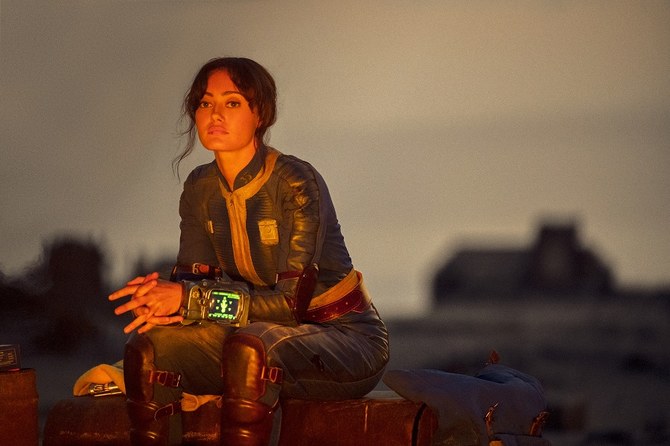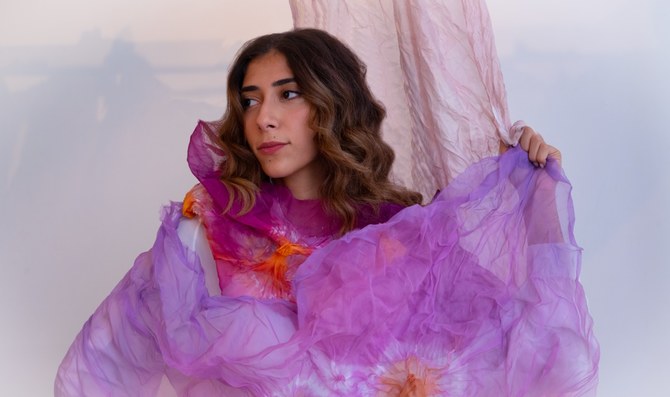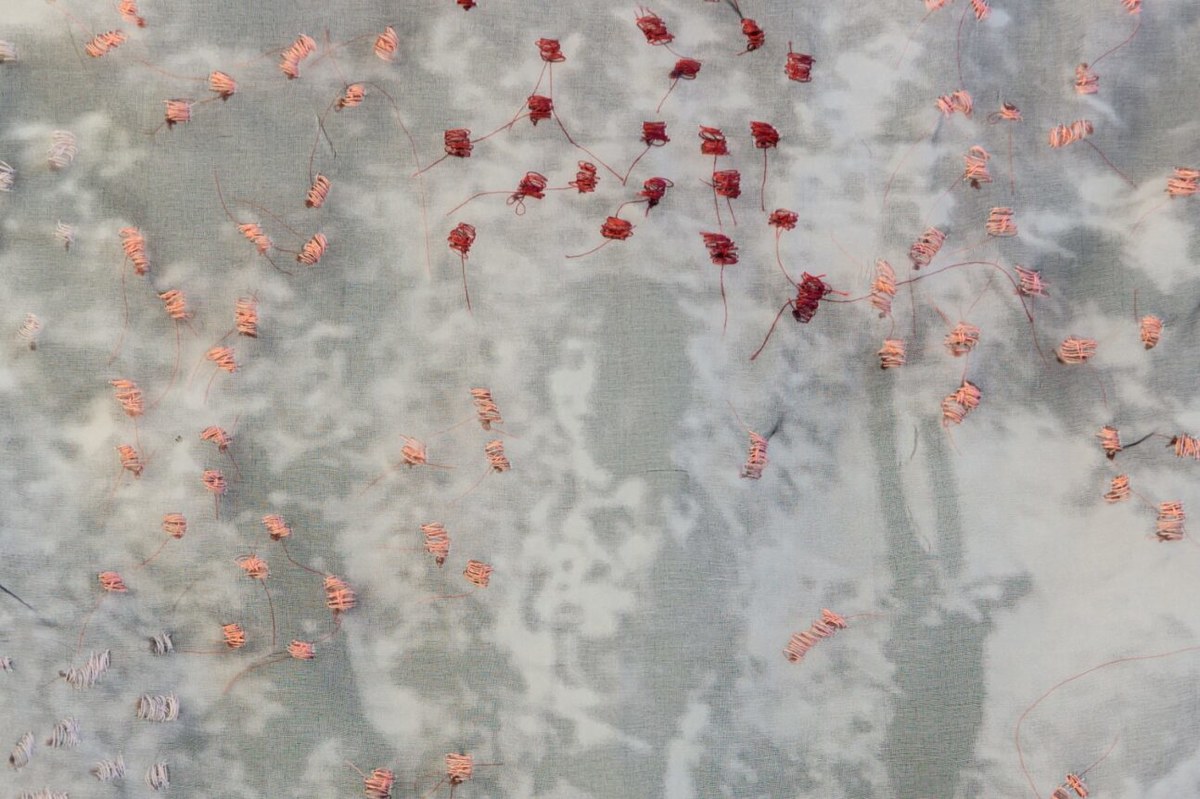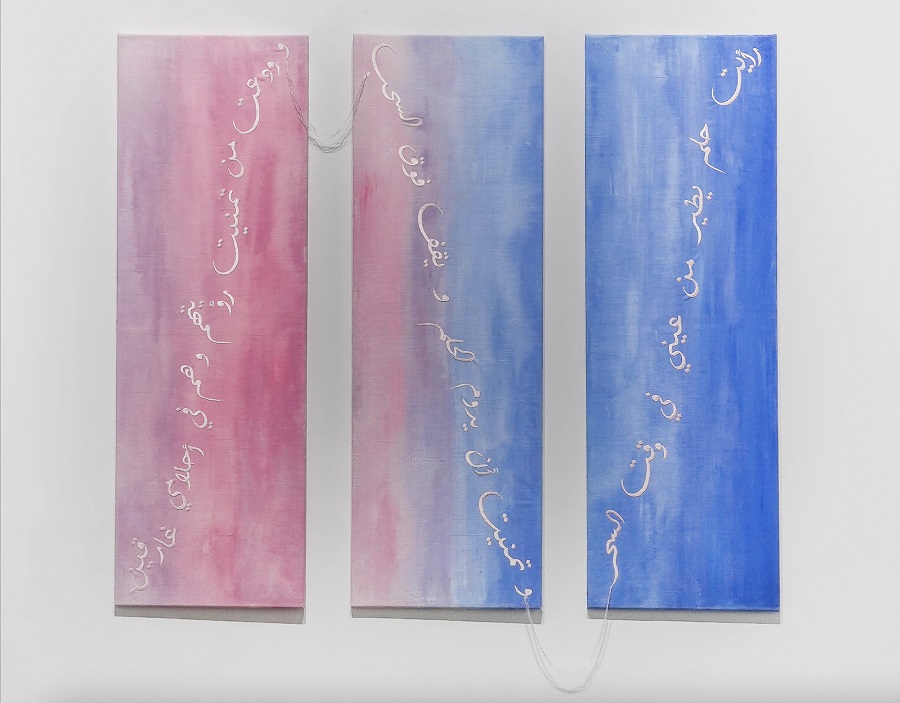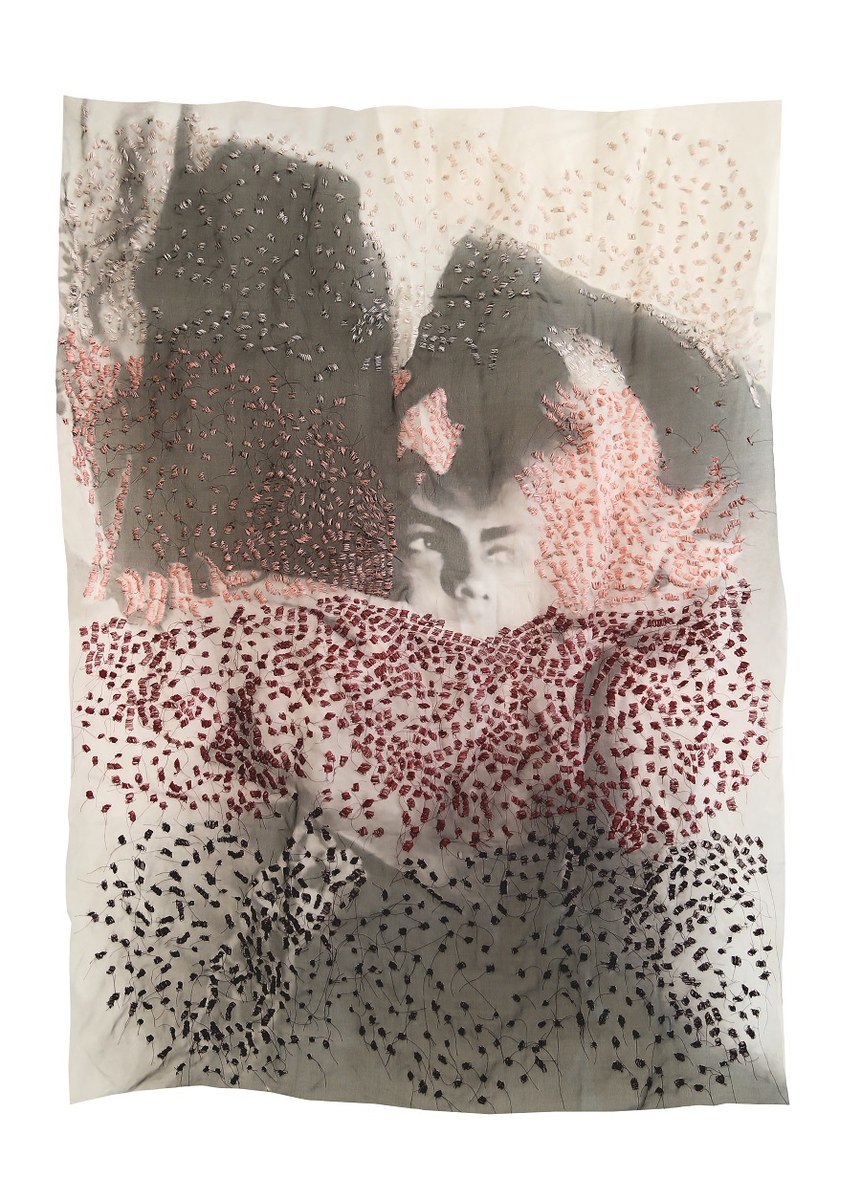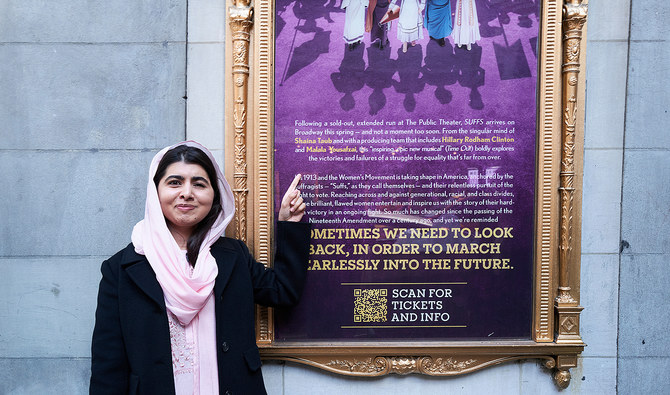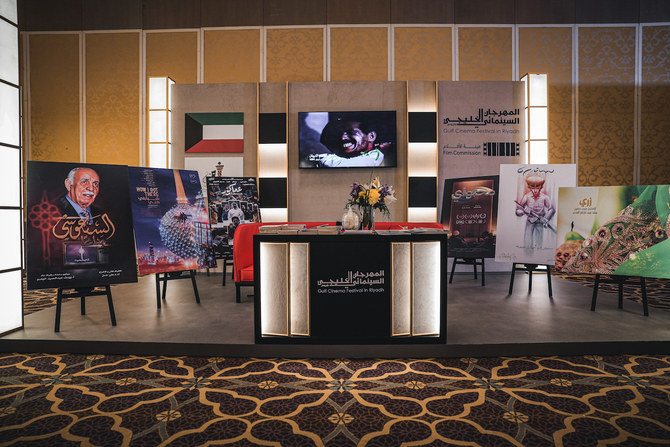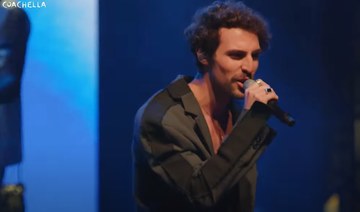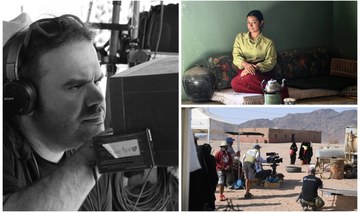LOS ANGELES: British rock band Queen, featuring “American Idol” star Adam Lambert as lead vocalist, opened the first hostless Oscars show in 30 years on Sunday with a rollicking performance that brought the Dolby Theatre’s celebrity crowd to its feet.
The two active, surviving musicians from Queen’s original lineup — guitarist Brian May and drummer Roger Taylor — joined Lambert, filling in as frontman for the late Freddie Mercury, to play two of the band’s greatest hits: “We Will Rock You” and “We Are the Champions.”
The familiar guitar and drum riffs brought the star-studded theater audience out of its chairs, with many of the Hollywood luminaries seen singing along.
Queen and Mercury are the subject of “Bohemian Rhapsody,” a hit film nominated for best picture and in the running for a total of five categories at this year’s Academy Awards, the 91st edition of the film industry’s highest honors.
Launching the ABC telecast with a live rock band was a virtually unprecedented choice that came about after comedian Kevin Hart, originally picked to host the show, bowed out after a furor over past homophobic material in his standup act and tweets.
Hart’s withdrawal in December left the Oscars without a master of ceremonies for the first time since 1989. That year, the broadcast opened with an 11-minute song-and-dance number, widely derided by critics, featuring Rob Lowe and an actress dressed as Snow White.
In recent years, the opening monologue of the Oscar host has become a platform for gags and jokes lampooning politicians and many of the stars in attendance.
But the Queen performance set the stage for a night that was expected to include a flurry of big musical moments and presentations from such recording luminaries as Bette Midler, Jennifer Hudson, Jennifer Lopez, and record producer Pharrell Williams.
Lambert first appeared with Queen’s May and Taylor in 2009 as a contestant on the hit talent show “American Idol” when he performed two of the band’s hits on that program. The trio went on to collaborate occasionally in 2011 and have since toured repeatedly together as Queen + Adam Lambert.
Oscar producers, anxious to boost viewership after a record low US TV audience in 2018, also are under pressure to keep the telecast from running over its three-hour designated time slot.
One short-lived plan to cut down on time, by handing out four of the two dozen Oscar trophies during commercial breaks, was scrapped after a backlash from movie industry heavyweights to the idea.
The Academy of Motion Picture Arts and Sciences also quickly abandoned an ill-fated proposal to create a new category of best “popular” movie as a way of boosting Oscar ratings.
Despite the lack of an official show host, Maya Rudolph got in some jabs as she took the stage with two fellow actress- comedians — Tina Fey and Amy Poehler — to present the night’s first award, to Regina King as best supporting actress for her role in “If Beale Street Could Talk.”
“So just a quick update for everybody in case you’re confused: There is no host tonight, there won’t be a popular movie category and Mexico is not paying for the wall,” Rudolph deadpanned, skewering the academy as well as US President Donald Trump’s promise to build a southern US border wall at Mexico’s expense.
* * * * *
Celebrities began arriving on the Oscars red carpet under sunny skies for an Academy Awards ceremony filled with suspense over the movie industry’s biggest prize and a night of what could be history-making firsts.
Without a host for the first time in 30 years, there’s also curiosity over whether organizers can return the Academy Awards to a must-see television event after a record low audience in 2018.
Lady Gaga, Bette Midler and Jennifer Hudson are all set to perform, along with rock band Queen featuring “American Idol” star Adam Lambert. Tennis champion Serena Williams and talk show host Trevor Noah will also appear on the Dolby Theatre stage in Hollywood in a bid to broaden the show’s appeal beyond movie fans.
Despite the celebrity names, all eyes are on the best picture prize in one of the most eclectic Oscar line-ups for years.
Disney’s “Black Panther,” the first superhero movie ever nominated for best picture, will compete against popular musicals “A Star is Born” from Warner Bros and 21st Century Fox film “Bohemian Rhapsody,” along with racially themed “Green Book” and “BlacKkKlansman” from Universal Pictures.
Black-and-white Mexican film “Roma,” quirky 18th century Fox Searchlight comedy “The Favourite” and independent political satire “Vice” round out the competition
After two months of intense and costly campaigning, award watchers say the winner is anyone’s guess.
“Best picture is probably a toss up between ‘Roma’ and ‘Green Book,’ and I can maybe see ‘BlacKkKlansman’ sneaking in to win,” said Alison Willmore, critic and culture writer at BuzzFeed News.
The winners are chosen by the 8,000 members of the Academy of Motion Picture Arts and Sciences.
A victory for “Roma,” director Alfonso Cuaron’s sentimental journey back to his childhood, would mark the first Oscar best picture win for Netflix and a sign that streaming services can not only compete with traditional Hollywood studios, but beat them at their own game.
“Roma,” shot entirely in Spanish and with 10 Oscar nominations, is also considered the frontrunner in the foreign language category. No foreign language film has ever won best picture, and no movie has ever won both.
“’Roma’ is a little art-house movie that is impressionistic. It doesn’t have much plot but it does follow the recent pattern of art-house movies winning, like ‘The Shape of Water’ and ‘Birdman’,” said Tom O’Neil, founder of awards website GoldDerby.com.
Lady Gaga is widely expected to take home her first Oscar for her hit song “Shallow,” which she will perform on Sunday in a much-anticipated live duet with co-star and best actor nominee Bradley Cooper.
Gaga is also competing for best actress for her role as a struggling singer in “A Star is Born.” Pundits, however, expect that statuette to go to Glenn Close for “The Wife,” who would finally clinch an Oscar on her 7th attempt.
It could be a momentous night for diversity. Spike Lee is vying to become the first black director to win an Oscar for his explosive take on US race relations in “BlacKkKlansman“; Rami Malek, who has Egyptian heritage, could be named best actor for his performance as the late Queen frontman Freddie Mercury in “Bohemian Rhapsody;” Regina King (“If Beale Street Could Talk“) and Mahershala Ali (“Green Book“) are also seen as strong contenders in the supporting actor races.
The Academy Awards will be televised live on ABC television starting at 8 p.m. EST/5 p.m. PST (0100 GMT on Monday).




